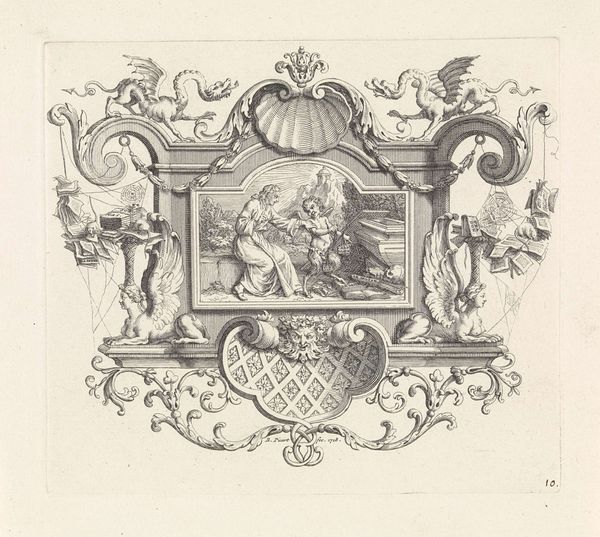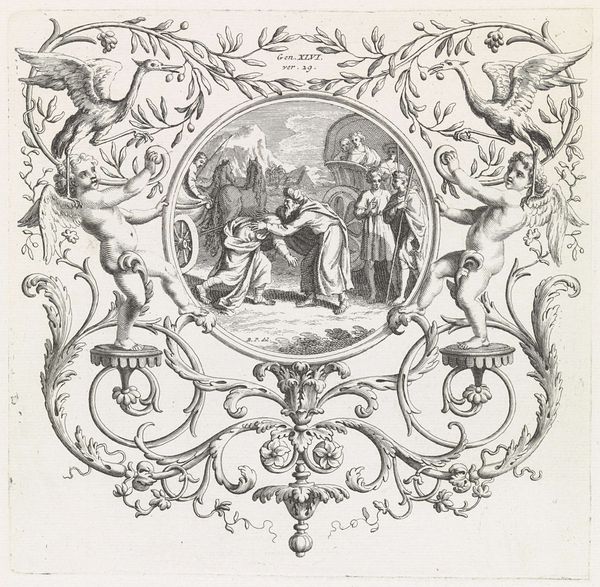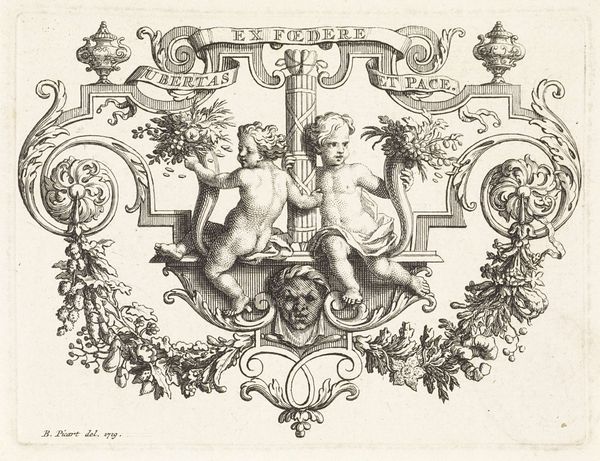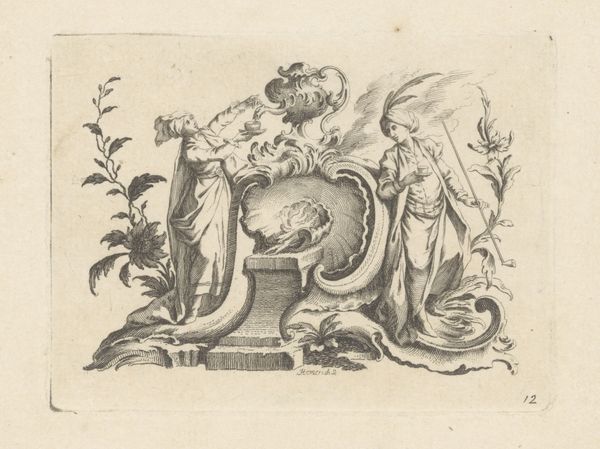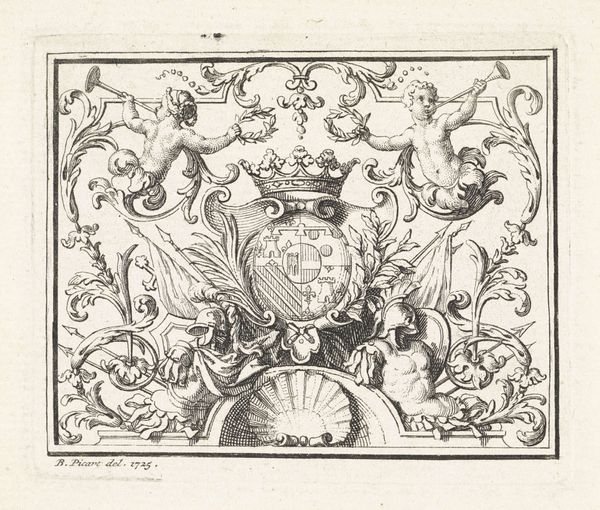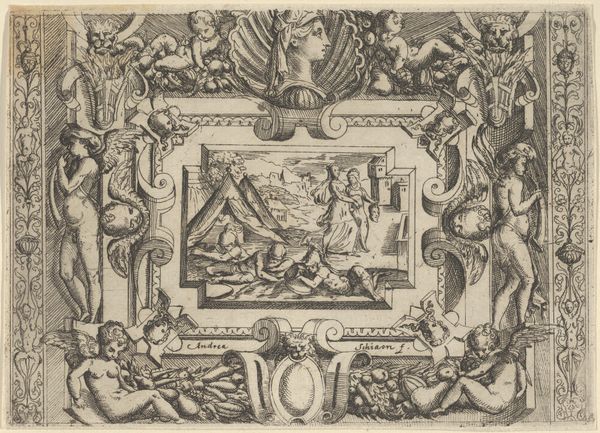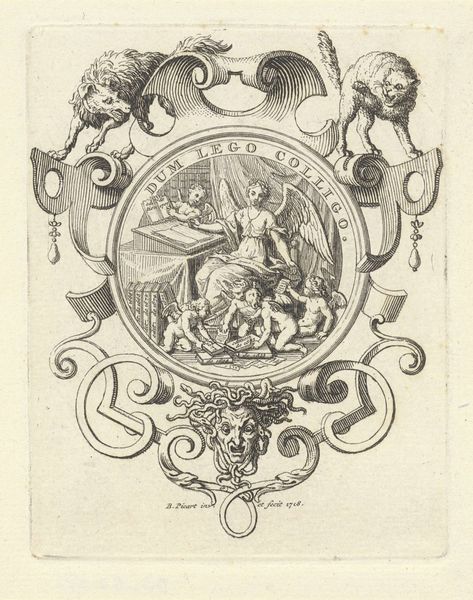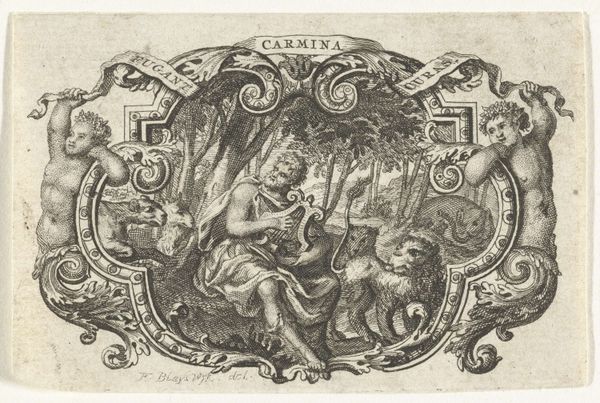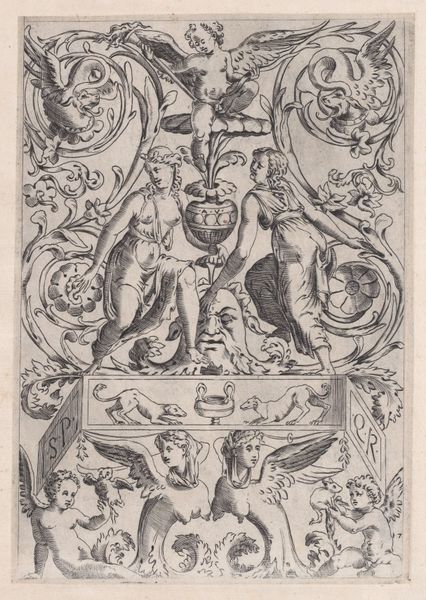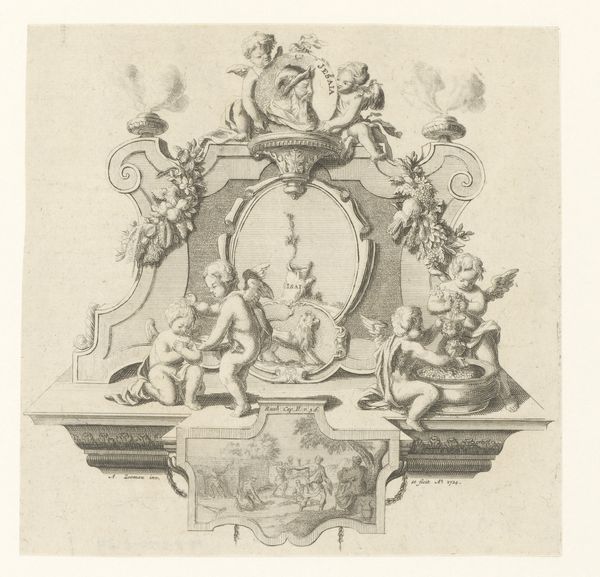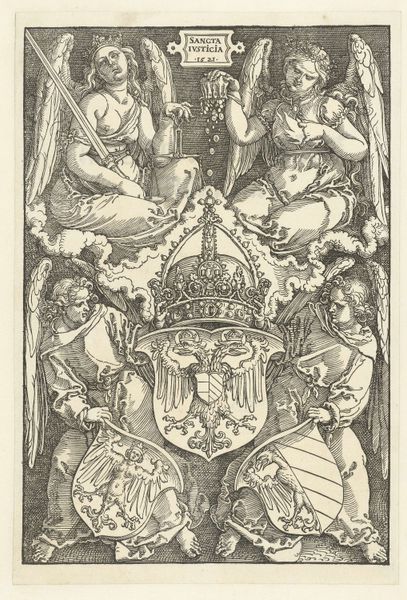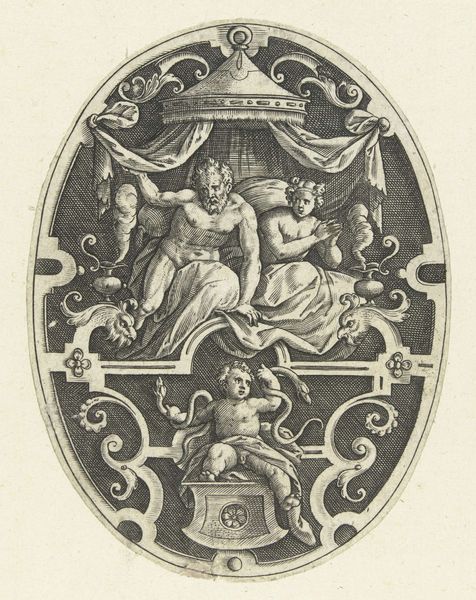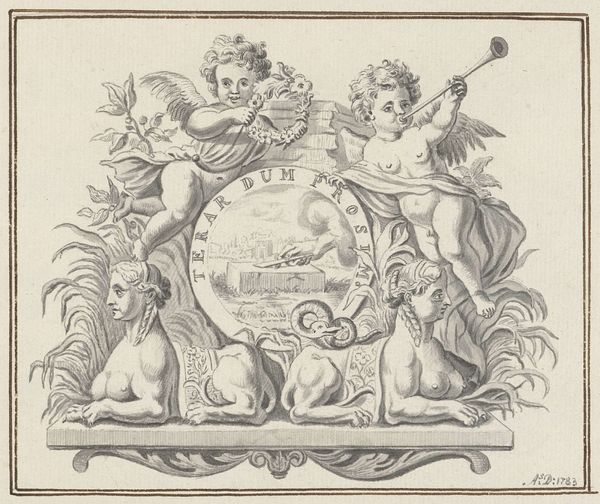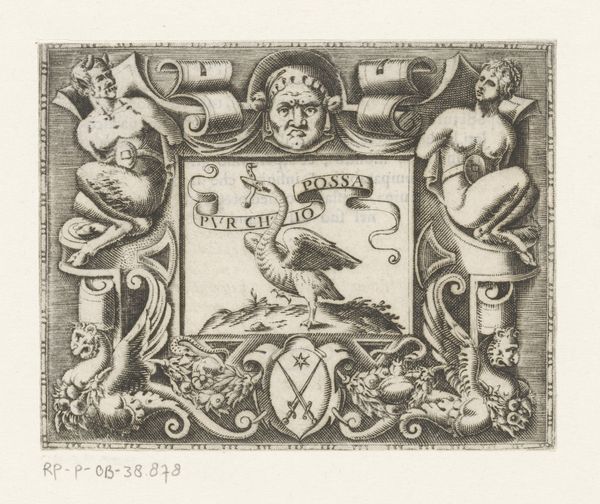
drawing, print, engraving
#
portrait
#
drawing
#
allegory
#
baroque
#
pen drawing
# print
#
figuration
#
line
#
history-painting
#
engraving
Dimensions: height 79 mm, width 96 mm
Copyright: Rijks Museum: Open Domain
Editor: Here we have Jacob Folkema's "Cartouche met portretmedaillon van Horatius", dating from 1702 to 1767. It’s a print, an engraving. It’s got such intricate detail. I’m curious about all the figures depicted. What stands out to you about its composition? Curator: The elegance lies precisely in that dense interplay of line and form. Note the way the cartouche's volutes mirror the figures' drapery, creating a visual rhyme. How does this interplay between organic and geometric forms strike you? Editor: It’s almost like the figures are emerging from the ornamentation, or the ornamentation is an extension of them. It makes it hard to know where one begins and the other ends. What's the significance of the textures, so different, all blending together? Curator: Indeed, it’s about creating a harmonious whole from disparate parts. This blending speaks to the Baroque ideal of unity, an all-encompassing aesthetic where individual elements contribute to a grand, unified vision. Editor: So it’s not just decoration, but also integral to conveying a message, a feeling, maybe? How intentional was that level of integration, do you think? Curator: Most certainly. The lines create the structure; the forms convey the message. Every curve and flourish plays a role in constructing the image's overall impact, dictating where the eye travels. We, as viewers, complete the image. Editor: I see! So paying attention to those details unlocks another level of meaning in this artwork. Curator: Precisely. By examining the visual language of the work, we uncover a richer understanding of its intended effect. Form and message united.
Comments
No comments
Be the first to comment and join the conversation on the ultimate creative platform.
